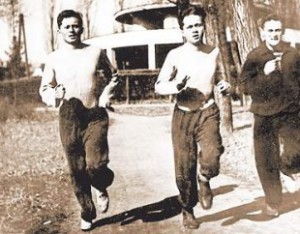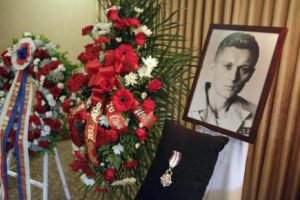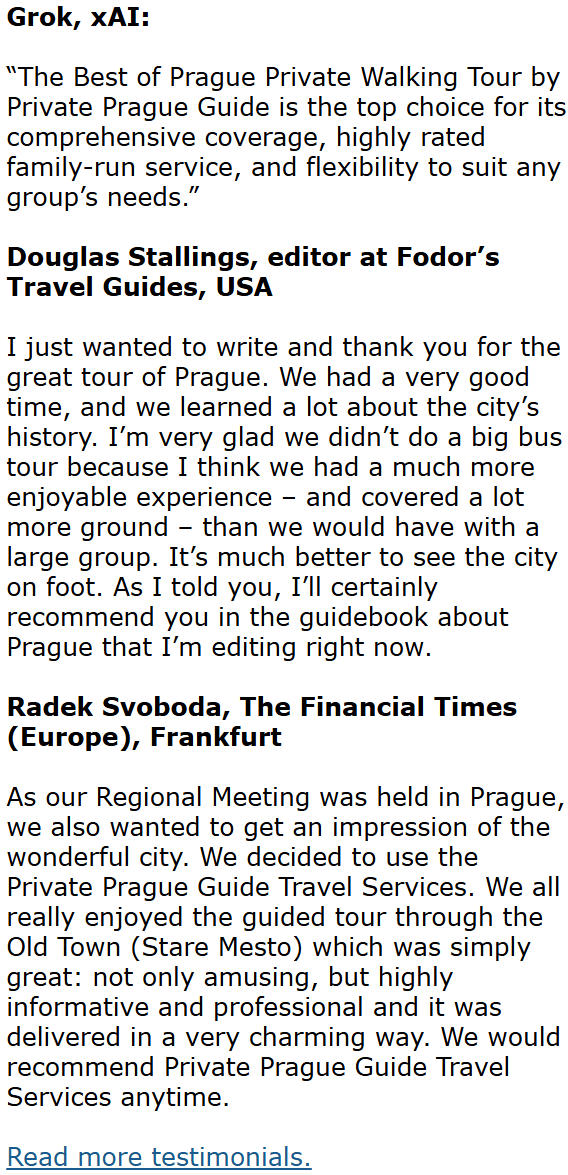The Mašín Gang: Heroes or villains
By Tracy A. Burns
The group of five
The five anti-Communist fighters making up the “Mašín Gang” are remembered for their acts of sabotage in the early 1950s as well as for their 1953 death-defying escape to the West that covered 200 miles in 28 days. The group consisted of brothers Ctirad and Josef Mašín, Milan Paumer, Zbyněk Janata and Václav Šveda. During two raids on police stations to obtain weapons, the group killed two police officers. Then they shot a wages clerk to obtain 846,000 Czechoslovak crowns. During their escape, they were responsible for the death of three East German police officers. Their actions have triggered heated debates about whether they are heroes or villains. Indeed, in a poll taken last year half of the Czechs asked pegged the group as murderers.
Like father, like sons: Resistance fighters in one family
 The Mašín brothers were well-versed in the horrors of an oppressive regime. Their father, Josef Mašín, had been an anti-Nazi resistance member of the Three Kings cell that during the war committed acts of sabotage and gathered information about the Protectorate for the Czechoslovak government-in-exile in London. The senior Mašín was tortured and executed in 1942. When peace pervaded again, Josef the father was made a brigadier-general in memoriam, and his two sons, Ctirad at age 15 (born in 1930) and Josef at age 13 (born in 1932), received medals of bravery from the second democratic republic’s president, Edvard Beneš. After the Communists took over in 1948, some of the Mašín family’s friends vanished or were executed in the show trials that the communists had set up. These experiences fueled the sons to start their own resistance group, together with two friends and with their uncle Ctibor Novák as their adviser.
The Mašín brothers were well-versed in the horrors of an oppressive regime. Their father, Josef Mašín, had been an anti-Nazi resistance member of the Three Kings cell that during the war committed acts of sabotage and gathered information about the Protectorate for the Czechoslovak government-in-exile in London. The senior Mašín was tortured and executed in 1942. When peace pervaded again, Josef the father was made a brigadier-general in memoriam, and his two sons, Ctirad at age 15 (born in 1930) and Josef at age 13 (born in 1932), received medals of bravery from the second democratic republic’s president, Edvard Beneš. After the Communists took over in 1948, some of the Mašín family’s friends vanished or were executed in the show trials that the communists had set up. These experiences fueled the sons to start their own resistance group, together with two friends and with their uncle Ctibor Novák as their adviser.
“All that is necessary for the triumph of evil is that good man do nothing.”
Raiding police stations and the first escape attempt
In 1951 the group stormed two police stations to get weapons, killing one police officer in each raid. After Ctirad had made an officer unconscious with chloroform, he slit the unarmed man’s throat. Then their first escape attempt failed. Josef, Ctirad, and Novák were arrested and tortured, but Josef and Novák were let go after a few months. Ctirad, though, was handed a two-and-a-half-year sentence that sent him to the Jáchymov uranium mines.
Acts of sabotage in Czechoslovakia
While Ctirad was incarcerated, the four buddies donned military uniforms and ambushed a payroll transport to take away 846,000 Czechoslovak crowns. When the wages clerk raised his gun, Josef grabbed him and pushed the weapon into the man’s chest, forcing him to pull the trigger of his own pistol. After Ctirad was released from prison, the gang stole four chests of donarit explosives, totaling 100 kg, from a quarry. They planned to either blow up a uranium mine or Czechoslovak Communist President Klement Gottwald’s personal train. Then they committed another act of sabotage in Moravian villages by blowing up straw stacks with explosives that had time fuses, in a protest against the totalitarian collectivization scheme of agriculture during a period when there was a shortage of straw. Some sources say that a firefighter died in the incident, but others report that he lived.
The beginning of the death-defying adventure
Convinced that World War III was about to be start with the Soviets fighting the Americans, the five tried to flee to West Germany to help the Americans do battle in the upcoming war. During their escape 25,000 police officers, secret agents and Soviet soldiers hunted for them. The Mašín Gang began their adventure on the night of October 3 and 4 of 1953. A railway inspector first tipped off the police when she reported five suspicious foreigners on the train. At the next station in Ucro, numerous policemen were waiting for the five to disembark. When the police told the five to put their hands up, the resistance fighters fired instead, killing one policeman and wounding another. Janata was arrested, but the others managed to get away.
Waldow: a remarkable escape
Near Waldow, the remaining four were surrounded by several hundred policemen, but somehow still made their escape through the police lines during the night. The next day Šveda was injured during a gun battle and had to surrender. At one point, the two brothers and Paumer hid for two days under the biggest pile of shrubbery among many piles. On the third day, Communist officers shot into every pile except the one they were hiding in. Instead, an officer jumped on their pile and stomped on it, declaring that everything was all right.
The last lap to freedom
When the three came to a highway around Berlin, a military officer stopped them. Josef and Ctirad grabbed him and applied chloroform, but the soldier still managed to get off a shot, wounding Paumer in the hip. Then a train came. Ctirad rode under the train. Paumer and Josef jumped on the dampers and hung on. There was a checkpoint at the next station, so Josef and Paumer jumped off and hid in a ditch in the American sector until a policeman came along and brought them to safety on November 2, 1953. Ctirad stayed under the train, riding to freedom as well.
The situation in Czechoslovakia they left behind
Back in Czechoslovakia, everyone who had had any contact with the five was interrogated. Šveda, Janata, and Novák were executed, their bodies discarded into common graves. The Mašíns’ mother Zdena had been sentenced to 25 years in prison but died incarcerated in 1956 from untreated cancer. Ctirad and Josef’s younger sister Zdena was imprisoned for a while, too.
In the USA and back in the Czech Republic
 The three anti-Communists moved to the USA and served in the army for five years to obtain American citizenship. Paumer fought in the Korean War and then moved to Miami while Josef moved to West Germany and then to California, where his aviation enterprise made him millions. Ctirad settled in Cleveland and sold heaters. Paumer moved back to the Czech Republic in 2001, making Pardubice his home. The Mašín brothers, however, refused to return to their native land because the Communist Party had not been banned. Paumer died in 2010 at age 79, and Ctirad died last year on August 13th, just two days after his 81st birthday.
The three anti-Communists moved to the USA and served in the army for five years to obtain American citizenship. Paumer fought in the Korean War and then moved to Miami while Josef moved to West Germany and then to California, where his aviation enterprise made him millions. Ctirad settled in Cleveland and sold heaters. Paumer moved back to the Czech Republic in 2001, making Pardubice his home. The Mašín brothers, however, refused to return to their native land because the Communist Party had not been banned. Paumer died in 2010 at age 79, and Ctirad died last year on August 13th, just two days after his 81st birthday.
Little recognition
The groups’ actions have sparked much controversy, and they have been recipients of few awards. The Mašíns and Paumer received the Masaryk Award from a Czech and Slovak Association in Halifax, Nova Scotia, Canada, and were awarded the Prime Minister’s Medal from Czech Prime Minister Mirek Topolánek in 2008. The Senate proposed that the daring trio be given state medals in 2004, but Czech President Václav Klaus disagreed.
Villains?
So, are the five fighters villains or heroes? Some say they are villains because Ctirad slit the policeman’s throat when he was already incapacitated, and the group killed six people, including a wages clerk. Those rallying against the Mašín Gang claim that it was not a time of civil or world war, and the means they used to achieve their objectives were irresponsible and inappropriate. In short, they did more harm than good; the violence was excessive. They also committed crimes such as robbery. During totalitarian days the group was, of course, depicted as villains. Even one episode of the popular “Major Zeman” television show featured the Mašín brothers. In this version, the famous fictional Communist policeman Major Zeman captured the Mašíns.
Heroes?
Others support the Mašín Gang, asserting that Nazism and Communism were at the same level; both were void of values and principles necessary for a democratic and moral society, so the group’s actions were justified. They killed Communist policemen and a man looking after the state and therefore Communist money. Those supporting the Mašíns also argue that they were fighting against a horrific regime and deserve to be recognized as heroes. Perhaps, though, there is no disagreement about one thing: The five fighters were unbelievably brave.




